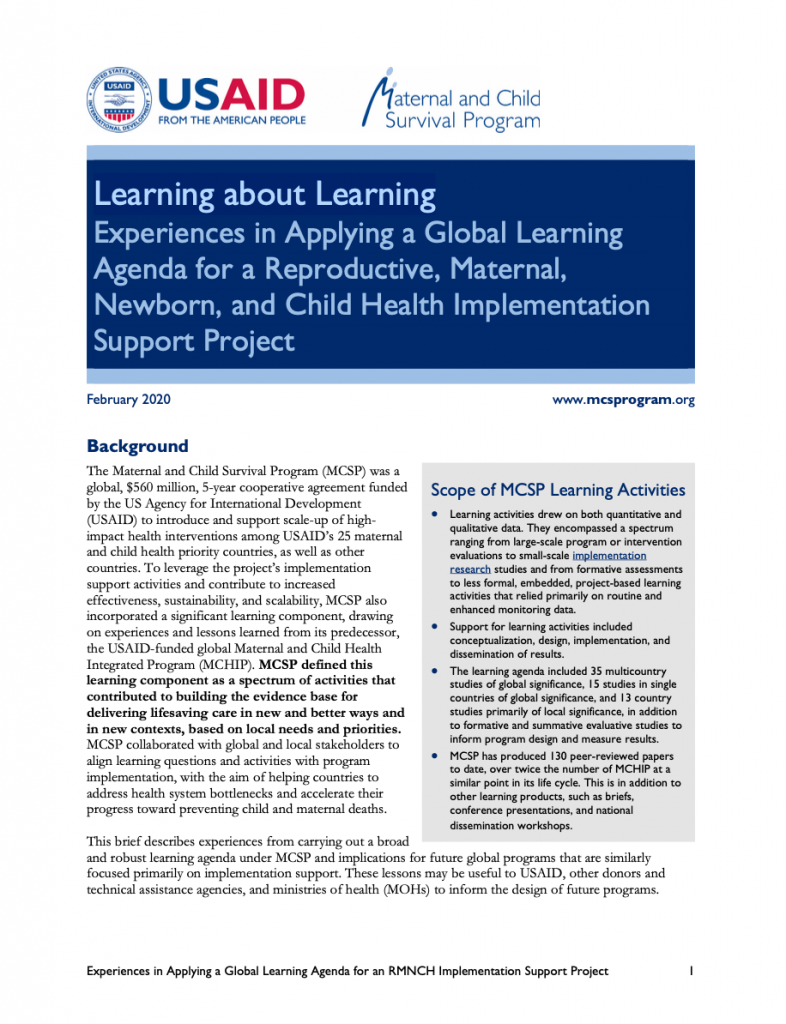
This brief describes experiences from carrying out a broad and robust learning agenda under MCSP and implications for future global programs that are similarly focused primarily on implementation support. These lessons may be useful to USAID, other donors and technical assistance agencies, and ministries of health (MOHs) to inform the design of future programs. […]
Read More…
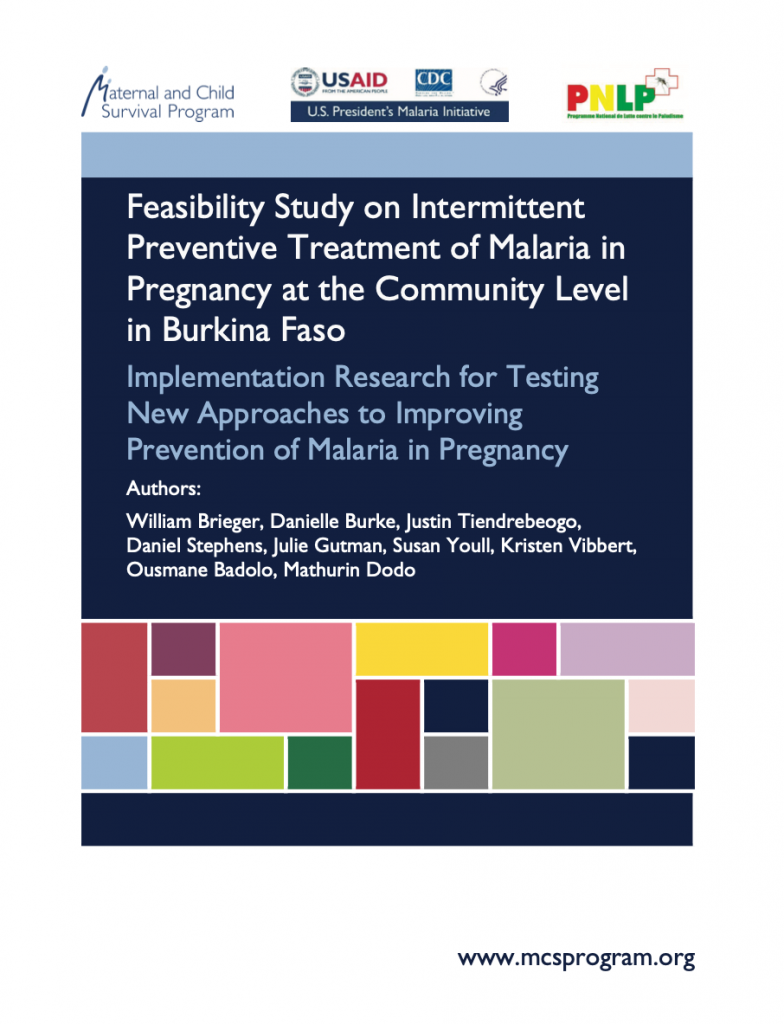
Burkina Faso’s 2016–2020 National Malaria Strategic Plan aims to reduce malaria case incidence using strategies that include the prevention of malaria in pregnant women using intermittent preventive treatment of malaria in pregnancy with sulfadoxine-pyrimethamine (IPTp-SP). The challenge has been achieving the recommended three or more monthly doses starting at week 13 of pregnancy, which was […]
Read More…
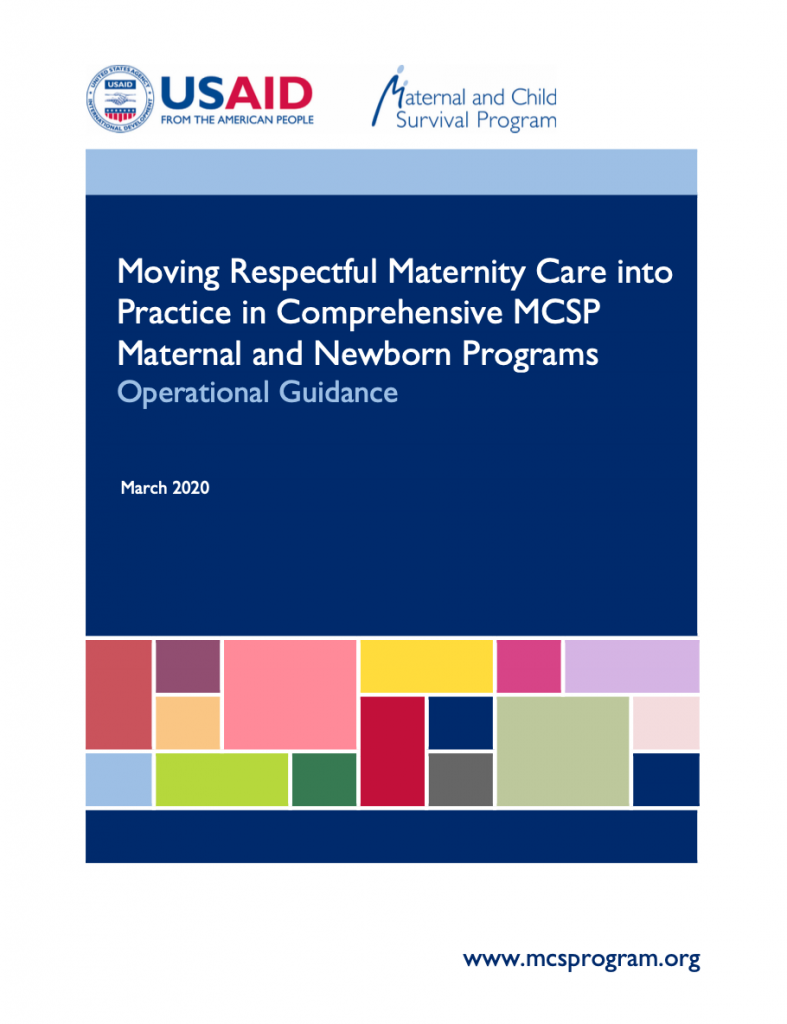
Women’s and families’ experiences of childbirth care in health facilities is fundamental to their overall experience of childbirth and to their decision about where to give birth. Childbirth is an experience with deep personal and cultural significance and women and families want, and have the right to, respectful dignified care during childbirth. Studies from around […]
Read More…
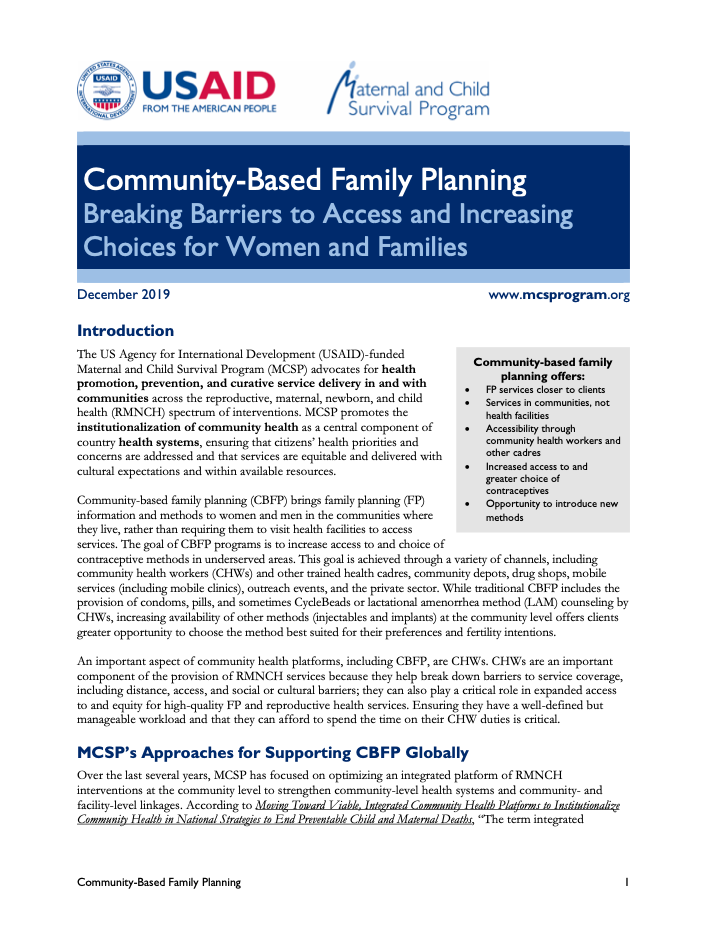
The US Agency for International Development (USAID)-funded Maternal and Child Survival Program (MCSP) advocates for health promotion, prevention, and curative service delivery in and with communities across the reproductive, maternal, newborn, and child health (RMNCH) spectrum of interventions. MCSP promotes the institutionalization of community health as a central component of country health systems, ensuring that […]
Read More…
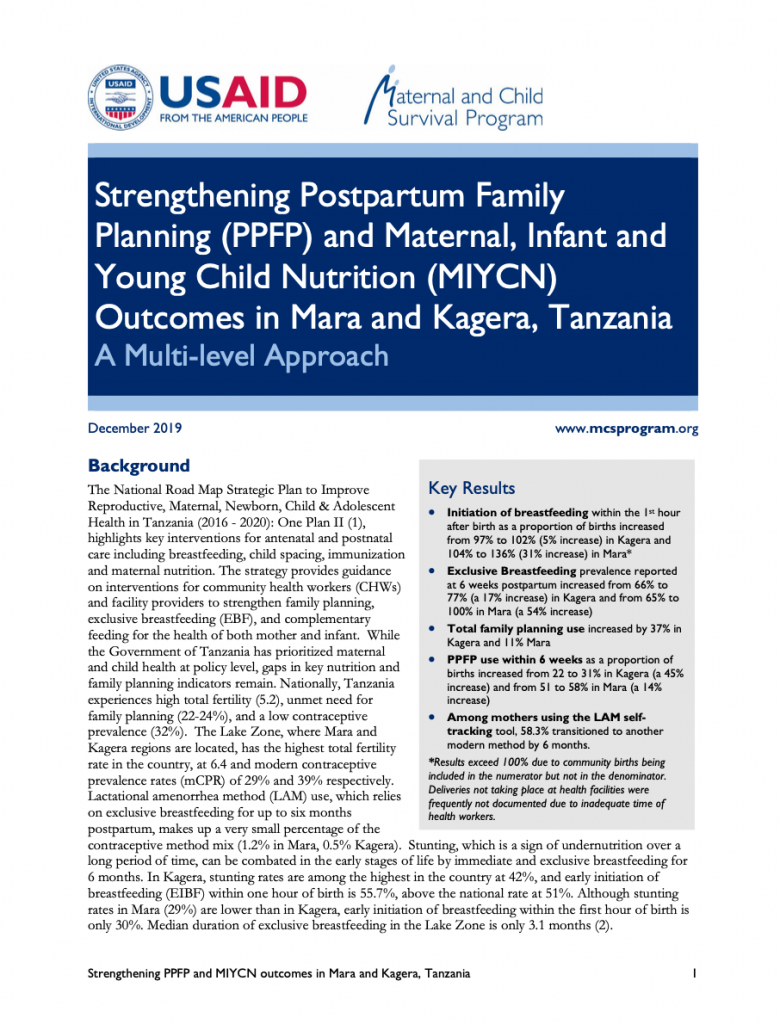
In Pakistan, the Maternal and Child Survival Program (MCSP), funded by the US Agency for International Development (USAID), worked in Sindh, Baluchistan, and Punjab provinces with a focus on improving women’s and children’s health by increasing the availability, accessibility, and utilization of family planning (FP) services. According to the 2017-18 Pakistan Demographic and Health Survey […]
Read More…
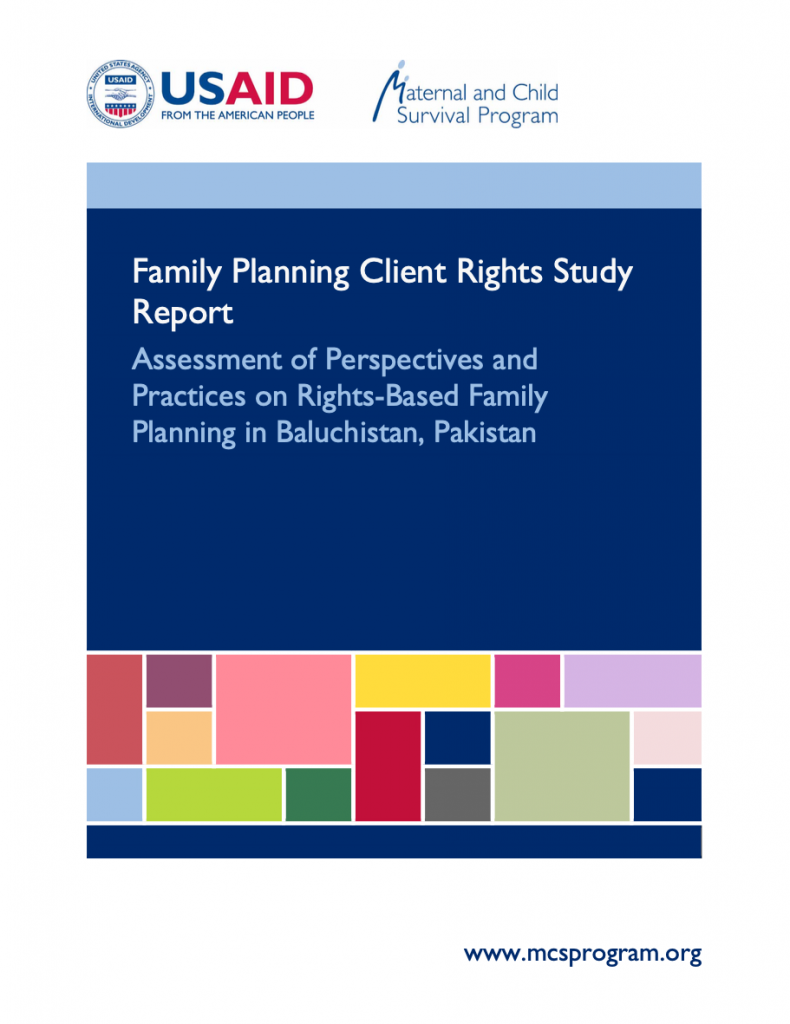
In Pakistan, the Maternal and Child Survival Program (MCSP), funded by the US Agency for International Development (USAID), worked in Sindh, Baluchistan, and Punjab provinces with a focus on improving women’s and children’s health by increasing the availability, accessibility, and utilization of family planning (FP) services. According to the 2017-18 Pakistan Demographic and Health Survey […]
Read More…
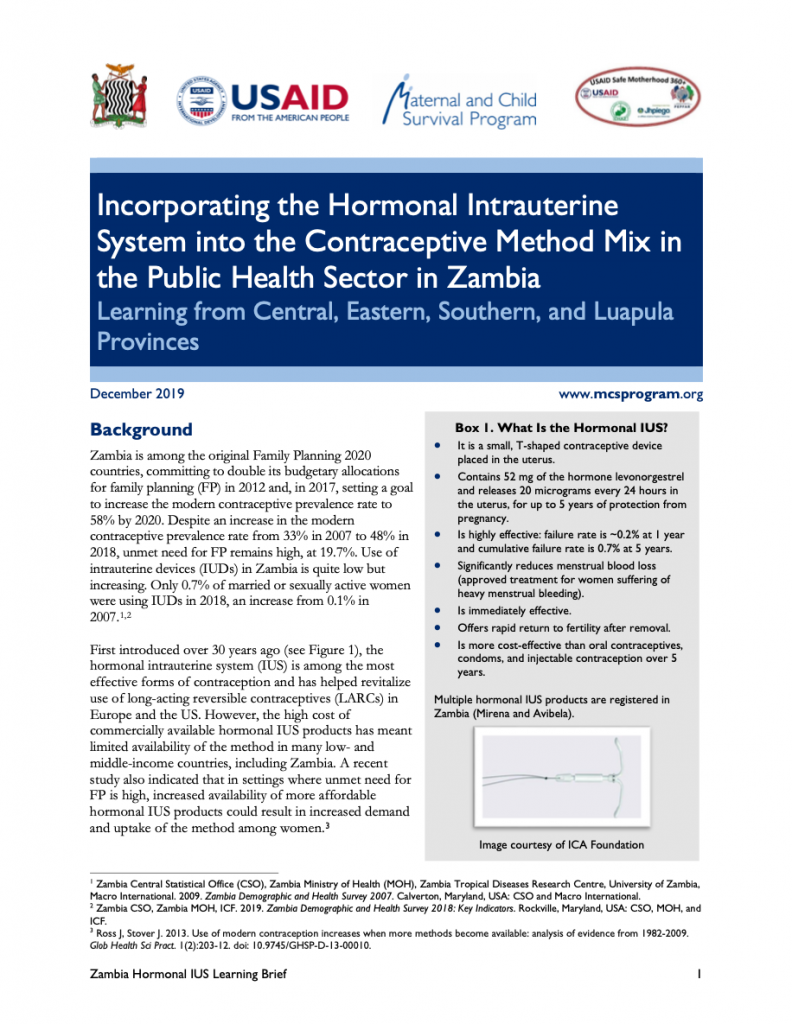
Zambia is among the original Family Planning 2020 countries, committing to double its budgetary allocations for family planning (FP) in 2012 and, in 2017, setting a goal to increase the modern contraceptive prevalence rate to 58% by 2020. Despite an increase in the modern contraceptive prevalence rate from 33% in 2007 to 48% in 2018, […]
Read More…
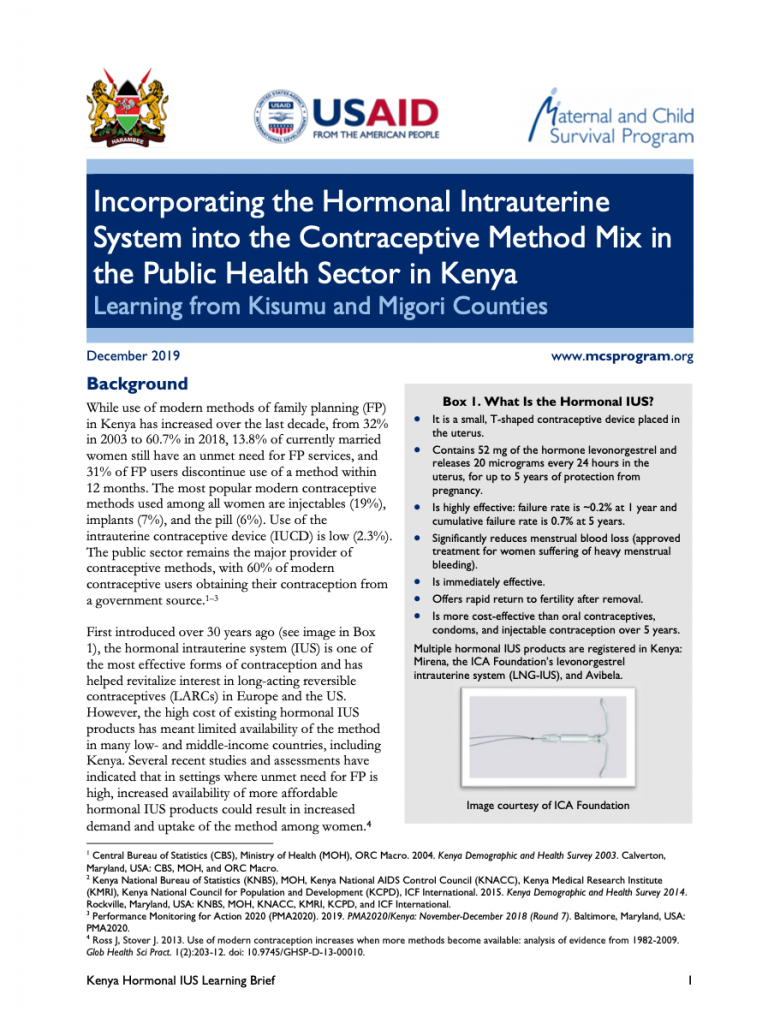
While use of modern methods of family planning (FP) in Kenya has increased over the last decade, from 32% in 2003 to 60.7% in 2018, 13.8% of currently married women still have an unmet need for FP services, and 31% of FP users discontinue use of a method within 12 months. The most popular modern […]
Read More…
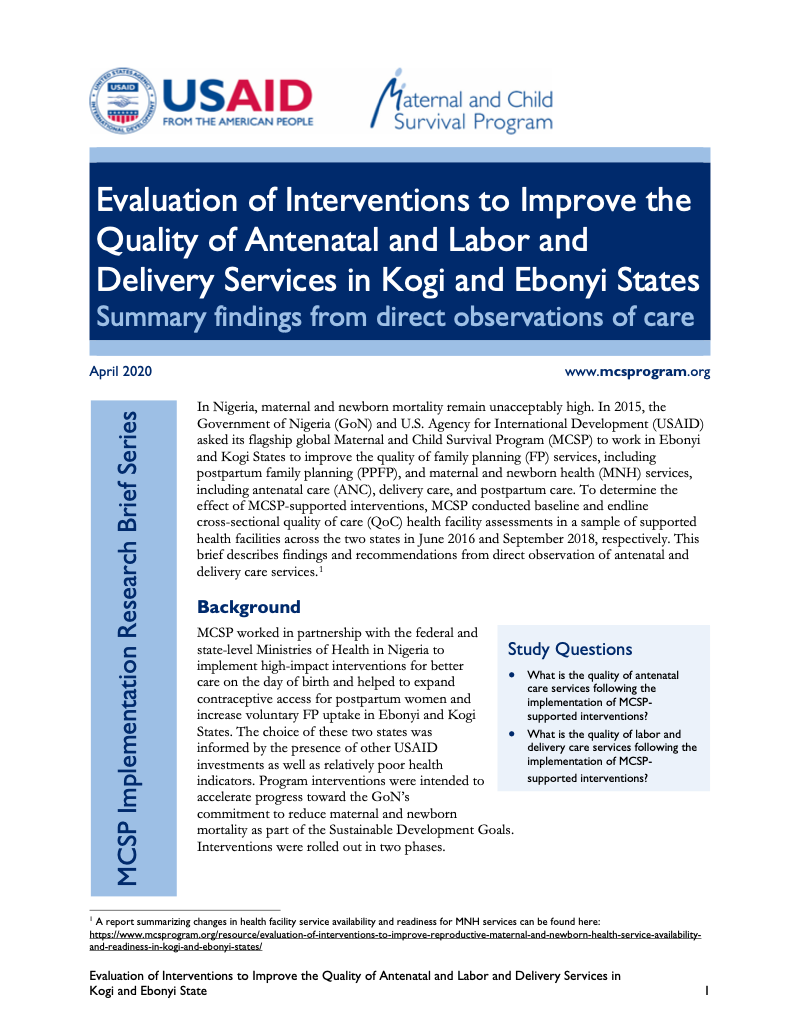
In Nigeria, maternal and newborn mortality remain unacceptably high. In 2015, the Government of Nigeria (GoN) and U.S. Agency for International Development (USAID) asked its flagship global Maternal and Child Survival Program (MCSP) to work in Ebonyi and Kogi States to improve the quality of family planning (FP) services, including postpartum family planning (PPFP), and […]
Read More…
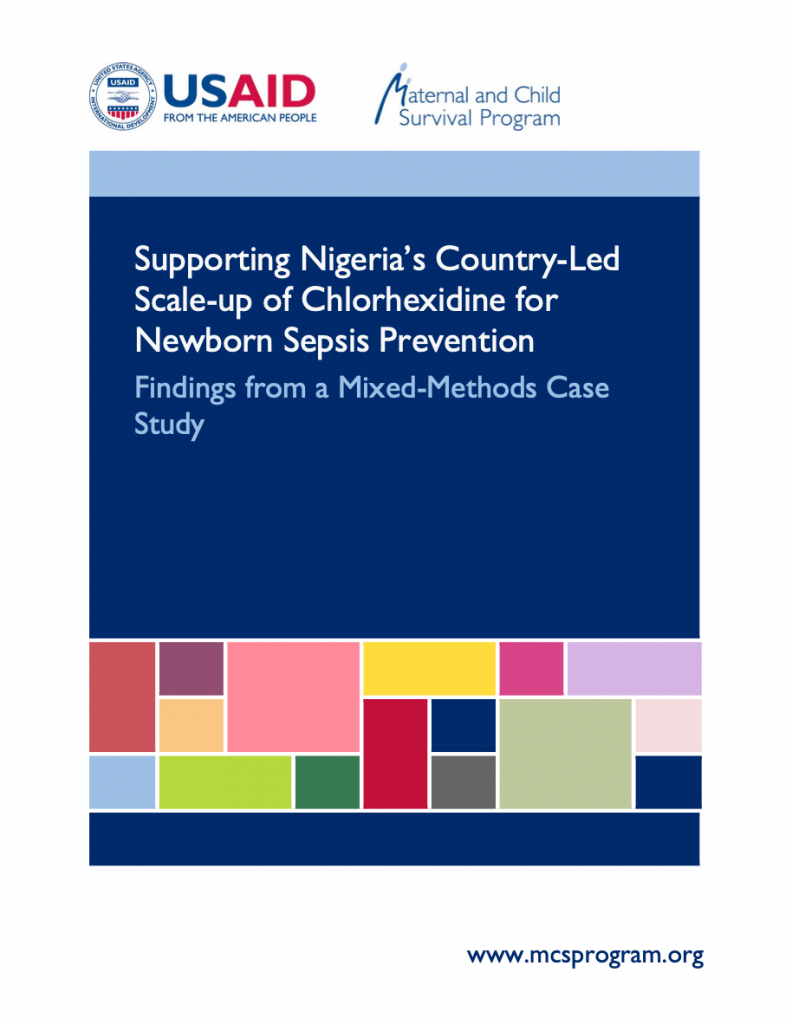
Nigeria’s neonatal mortality rate was estimated at 38 per 1,000 live births in 2013, one of the highest in the world.1 About one-fourth of these deaths were estimated to be due to infections, many of which could be prevented through proper umbilical cord care.2 Chlorhexidine (CHX) gel is an over-the-counter product that reduces neonatal infection […]
Read More…










